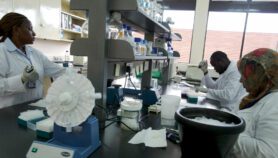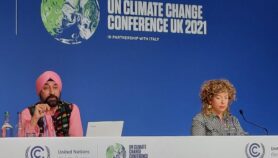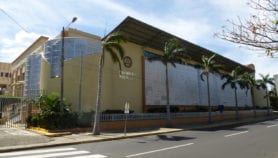Send to a friend
The details you provide on this page will not be used to send unsolicited email, and will not be sold to a 3rd party. See privacy policy.
The US State Department should pay more attention to science, engineering and technology (SET) in its diplomatic activities, and increase its diplomats’ level of scientific literacy, according to an advisory panel.
The panel was set up two years ago by Secretary of State Condoleezza Rice to provide guidance on how the department — the equivalent of other countries’ foreign ministries — should modernise its activities.
Its recommendations, which were published at the end of last month, provide a potential framework for the long-term evolution of the department.
Among a broad set of recommendations, the panel urges the department to expand its investment in "expertise, presence, and global engagement" in SET.
This reflects the conclusion of one of its working groups that the department’s weakness in these areas is "a significant strategic blind spot", given that science and technology are expected to transform virtually all areas of human life, including many foreign-policy issues.
For example, Henrietta Fore, the executive director of the panel’s work, and director of the US Agency for International Development (USAID), is said to be increasing the agency’s focus on scientific and technological issues, although no details have yet been made public.
The working group, co-chaired by Barry Blechman, chair of the Henry L. Stimson Centre, and Tom Pickering, a former ambassador to the United Nations, also suggest that the department should cultivate research and development partnerships with other nations and nongovernmental organisations "more aggressively".
It suggests that such partnerships should target key global issues such as climate change, global health, energy security, and weapons proliferation and "include joint, long-term SET foreign assistance investments to enable developing countries to establish their own capacity".
To improve the overall situation, the full panel emphasises the State Department’s need to ensure "baseline SET literacy among all appropriate personnel", and to increase the overseas presence of personnel with significant SET expertise.
It also proposes that the department should expand its engagement in global SET networks through exchanges, assistance and joint research activities that address key issues.
The panel suggests that the United States should protect its interests by playing a leading role in formulating international laws, standards and practices in areas such as genetics, climate change and nanotechnology.
"The process by which these new rule sets are formed will be a critical domain of competition for power and influence in the coming century," they say.
John Daly, a former science official with USAID, says that the department’s science advisors have improved the situation considerably in recent years, for example by bringing more scientists to work in the agency through fellowship schemes.













